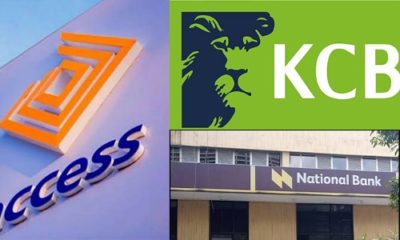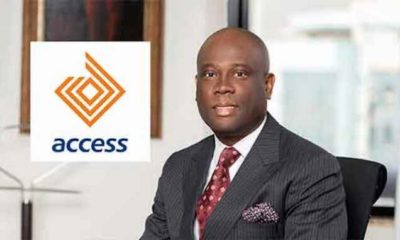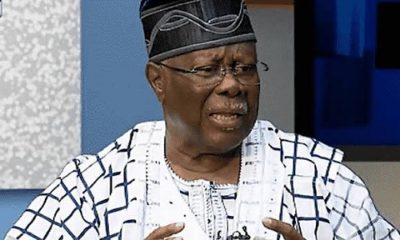Finance
Access Bank leads innovation advocacy to transform Nigeria’s leadership
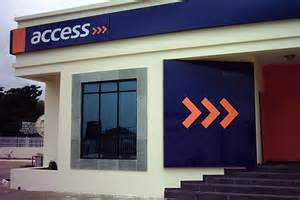
LAGOS-ACCESS bank Plc has led the call for Nigeria to adopt innovative approaches in its bid to transform its leadership for a better, prosperous society. The Chief Executive Officer/Group Managing Director, Access Bank, Herbert Wigwe made the call while speaking at the 2nd Access leadership conference held in Lagos. According to Wigwe, the question around leadership and innovation is perhaps more pertinent in Nigeria today that just had a successful transition into a new leadership.
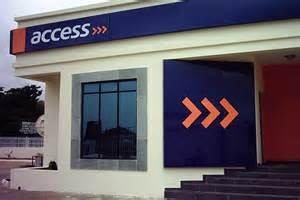 He said: “If we can change the world with very simple question, what if? What if our literacy rate in Nigeria is 100 percent? What if everyone in Nigeria had access to education? What if the fight against malaria and HIV was won? What if our infrastructure enabled economic success and opportunities for all Nigerians? And the banking industry could contribute to all these lofty goals by providing the best quality products and services at the cheapest prices for all Nigerians.
He said: “If we can change the world with very simple question, what if? What if our literacy rate in Nigeria is 100 percent? What if everyone in Nigeria had access to education? What if the fight against malaria and HIV was won? What if our infrastructure enabled economic success and opportunities for all Nigerians? And the banking industry could contribute to all these lofty goals by providing the best quality products and services at the cheapest prices for all Nigerians.
This conference will enable each and every one of us to ask the question, what if? The question around leadership and innovation is perhaps more pertinent in Nigeria today that just had a successful transition into a new leadership.”
While noting that the conference brought together global business leaders, innovators, entrepreneurs, politicians, civil society leaders to discuss important topics that affect all sectors, he added, “Despite the fact that there are global differences and economic challenges all over the world, there are also significant opportunities which we must all grasp both for home grown talents and for international investors. Whereas such an environment may bring its own challenges to the business world, we also know that such environment will create tenacious leaders, courageous politicians and innovative chief executives.
Leadership in a transformational world not only benefits from innovation, but it demands it. Innovation is no longer an option, it is an absolute necessity.” Earlier in an opening address, Lagos State Governor, Akinwunmi Ambode said: “We live in a world where transformation in every sphere of human endeavour is taking place at a dizzying pace. Since that historic feat when humans took a voyage to the moon, technology has so much developed that we now send man into the space. Just over a decade ago, mobile phones were almost unknown on this continent.
Today, there are over 160million mobile phone lines in Nigeria alone. It is a fact that we now use mobile phones to do almost everything from making phone calls to transferring money. “As the theme of this conference instructs, we must continue to innovate. We must always remind ourselves that for innovation to be meaningful, it must inform transformation.
This is what will bring about the transformational leadership in whatever spheres of endeavours we apply ourselves. And of course, ineffective and untimely innovation can only result in motion without movement, leadership without transformation. Those who refuse to innovate will vegetate. Indeed we live in an interesting times, an era when our abilities to influence the society depends very much on how we are able to bring innovate ideas to bear on our responsibilities.”
Business
Nigeria pays US$4.9 billion on petrol subsidy in 2024- NNPCL
It was however noted by Biztellers.com.ng, that although subsidy is back in effect, the main reason for that is the increasingly weak state of the Naira and the country’s extreme dependence on products importation. Also unlike the previous subsidy era, where several oil marketers were getting free subsidy refunds for unverified product importation, this subsidy era is witnessing only one importer, the NNPCL, which in effect is the sole receiver of government subsidies.
Yemie ADEOYE
INSPITE of the official position of the Nigerian government that the controversial petrol subsidy is gone for good as announced by the President on assumption of office, the state owned Nigerian National Petroleum Corporation Limited, NNPCL has disclosed that petrol subsidy is still fully operational in Nigeria, although, under a different identity.
Umar Ajiya, Chief Financial Officer at the NNPCL, disclosed that it cost the company a staggering N7.8 trillion (US$4.9) to cover this price gap in the first seven months of 2024.
Rather than simply referring to these claims as subsidies, he stated that the company is merely managing the price difference in petrol imports on behalf of the federation, stressing that this should not be misconstrued as a return to subsidy payments.
![]() This revelation has reignited discussions on whether the NNPC is indirectly offering subsidies, a concept typically defined as selling a product below its cost price.
This revelation has reignited discussions on whether the NNPC is indirectly offering subsidies, a concept typically defined as selling a product below its cost price.
Documents reviewed by Biztellers.com.ng showed that the term “subsidy” was used extensively in official correspondence between the NNPCL and the presidency, particularly in reference to the “shortfall.”
Recall that President Bola Tinubu reportedly approved NNPC’s request to utilize the 2023 final dividends due to the federation to offset these costs.
However, during a media briefing on Monday about the company’s 2023 audited financial statements, Ajiya refuted claims that the NNPC is involved in any subsidy scheme.
Ajiya further disclosed that the Nigerian government owes the NNPC N7.8 trillion ($4.9 billion) in subsidy-related debts for the period from January to July 2024.
In furtherance of his clarification to the News Agency of Nigeria (NAN), Ajiya insisted that no subsidy payments have been made to any marketer in the last nine years, citing the NNPC’s role as the sole importer of petrol under supply contracts.
He said, “In the last eight to nine years, NNPC Ltd. has not paid anyone a dime as a subsidy; no kobo has been disbursed by NNPC Ltd. in the name of subsidy. No marketer has received any payment from us for subsidy.”
“What has been happening is that we have been importing PMS, which has been landing at a specific cost price, and the government tells us to sell it at half price. So the difference between the landing price and that half price is a shortfall.
“And the deal is between the Federation and NNPC Ltd., to reconcile, sometimes they give us money, so there is no money exchanging hands with any marketer in the name of subsidy.”
Ajiya remained silent on how much of the $4.9 billion could have been remitted to the federation account if the NNPC had not been covering the “shortfall.”
It was however noted by Biztellers.com.ng, that although subsidy is back in effect, the main reason for that is the increasingly weak state of the Naira and the country’s extreme dependence on products importation. Also unlike the previous subsidy era, where several oil marketers were getting free subsidy refunds for unverified product importation, this subsidy era is witnessing only one importer, the NNPCL, which in effect is the sole receiver of government subsidies.
Banking
CBN Denies Currency Devaluation

The Central Bank of Nigeria (CBN) has refuted claims of devaluing the.
Earlier reports suggested that the CBN had devalued the Naira, lowering its exchange rate from N631 to the dollar, compared to the previous day’s rate of N461.60 at the Importers and Exporters (I&E) window.
However, the Central Bank of Nigeria (CBN) released a statement on Thursday through its Acting Head of Corporate Communications, Dr. Isa Abdulmumin, categorizing the report as false information.
In the statement titled ‘CBN Has Not Devalued The Naira’, he said the attention of the apex bank was drawn to the news report by an Abuja based newspaper edition of June 1, 2023, titled “CB Devalues Naira To 630/51”.
However, the CBN stated categorically that the news report was replete with outright FALSEHOODS and destabilizing innuendos, ‘reflecting potentially willful ignorance of the said medium as to the workings of the Nigerian Foreign Exchange Market.’
“For the avoidance of doubt, the exchange rate at the Investors’ & Exporters (I&E) window traded this morning (June 1, 2023) at N465/USS1 and has been stable around this rate for a while.
“The public is hereby advised to ignore the news report by Daily Trust in its entirety, as it is speculative and calculated at causing panic in the market,” the CBN spokesman added.
He, therefore, advised media practitioners to verify their facts from the Central Bank of Nigeria before publishing in order not to misinform the public.
Banking
BREAKING: CBN Increases Interest Rate By 0.5%

The interest rate in Nigeria has been raised to 18.5 percent, up by 0.5 percent, from 18 percent where it was pegged in March 2023.
The Central Banks of Nigeria’s (CBN) Monetary Policy Committee (MPC) resolved to this effect at its third meeting of 2023 in Abuja, on Wednesday.
Governor, CBN, Godwin Emefiele, made the disclosure in the communiqué of the MPC’s meeting, thereafter.
While engaging the media at the end of the two-day meeting, Emefiele, said the committee voted to keep the asymmetric corridor at +100 and -700 basis points around the MPR.
In the view of the MPC, rising inflation rate is traceable to the high energy cost and challenges around the supply chain, among others, which lie outside the corridors of the CBN.
Emefiele said, “The current trend in price development would continue to be monitored by the bank with greater collaboration with fiscal authority to address the drivers of inflation.”
Biztellers reports that the CBN had effected six consecutive interest rate increases, which has seen the rate move from 11.5 percent in March 2022 to 18.5 percent in May 2023.



